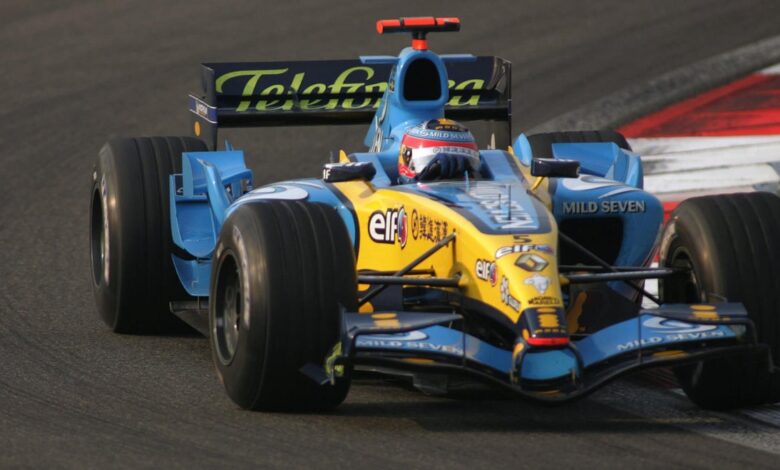‘Scaremongering’ or a cause for concern? Why the F1 engine debate is intensifying ahead of 2026

Formula One enthusiasts have been buzzing with excitement at the prospect of bringing back the iconic V10 engines. The distinctive roar of these engines is not just a sound but a part of the sport’s rich history and identity. Calls from influential figures in the F1 community, such as FIA president Mohammed Ben Sulayem, to consider reintroducing the V10 engines that were last used 20 years ago have sparked a debate within the paddock.
The idea of simpler, louder, and more affordable V10 engines running on fully sustainable fuels has raised questions about the future of the sport. With the current engine regulations set to undergo a major overhaul in 2026, the potential return of V10 engines poses a dilemma. Will the sport stick with the planned V6 hybrid power units or pivot towards the V10s?
The discussions surrounding the 2026 engine rules have been ongoing for years, with key stakeholders working to attract new manufacturers like Audi, Ford (through Red Bull), and General Motors to the grid. The commitment to fully sustainable fuels and greater electrification in the upcoming regulations has led to significant investments from these manufacturers. However, the recent calls for a reevaluation of the engine regulations have thrown a curveball into the mix.
Nikolas Tombazis, the FIA’s single-seater director, emphasized the need to consider the long-term direction of the sport before making any decisions about the engine regulations. The debate revolves around whether F1 should stick with the current regulations or opt for the new rules approved for 2026. Tombazis reassured that regardless of the decision, Formula One would be in a good place.
While some voices in the paddock have expressed concerns about the potential impact of the 2026 regulations on racing, Tombazis remains optimistic about the future of the sport. He believes that the cars will still be able to race closely and provide exciting competition for fans. Any changes to the 2026 plans would depend on the consensus among the engine manufacturers.
Red Bull team principal Christian Horner and Mercedes team principal Toto Wolff have differing views on the future of the engine regulations. Horner expressed doubts about the current rules for 2026, citing potential limitations that could affect the on-track spectacle. In contrast, Wolff sees the upcoming changes as an exciting adventure for F1 and believes that the sport should focus on the positive aspects of the new regulations.
The decision to move forward with the 2026 engine rules or consider a return to V10 engines will ultimately depend on the position of the engine manufacturers and the overall consensus within the F1 community. While the prospect of V10 engines may be enticing to some, the investments and preparations made for the 2026 regulations make a sudden change unlikely. As the debate continues, F1 fans can look forward to an exciting future for the sport, whether it involves V10 engines or the planned hybrid power units.
Overall, the discussions surrounding the future of F1’s engine regulations highlight the importance of balancing tradition with innovation to ensure the sport continues to captivate audiences around the world.





